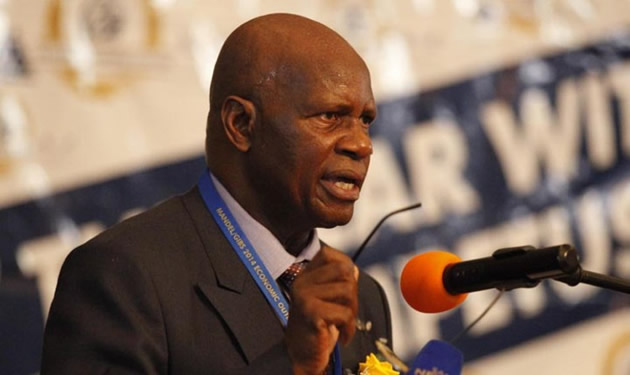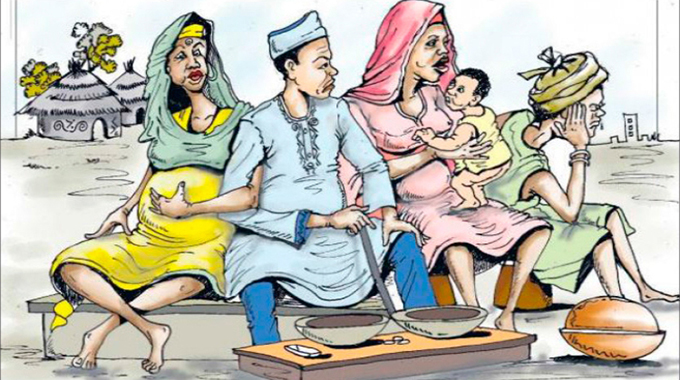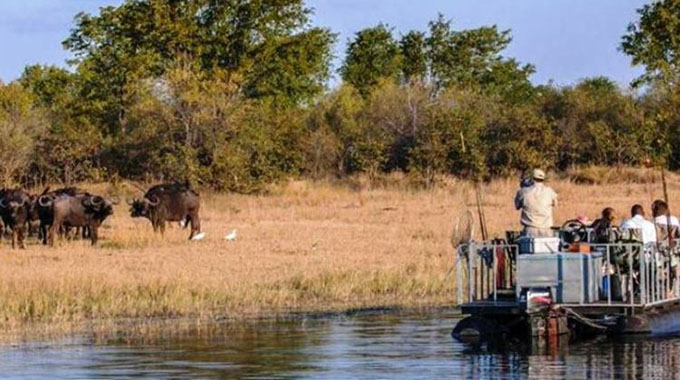A Rhodesian tapestry
Isdore Guvamombe Reflections
Back in the village, in the land of milk, honey and dust or Guruve, I had just arrived back from school. The primary school was far but routinely, boys of my age would go searching for cattle and goats in the afternoon, before subsequently closing them up for the night at sunset. Across Dande River lived a white farmer known by the sobriquet Chimusoro (Bighead). His head was extraordinarily big and shaped like a loaf of bread. He was known for rare fits of rage. He would tear his hair apart, throw tantrums and throw blows at anyone or anything next to him.
He charged like a rhino. Chimusoro had unleashed a reign of terror on villagers, young and old alike.
He normally crossed Dande River on horseback and that sent men, women and children scampering for cover.
His journeys were swoops on people he suspected to have stolen something from his farm or people, who let his bull stay with cows in the village or in worse scenarios swooping on villagers whose cattle strayed into this farm. He normally caged the cattle and only released them upon payment of $5 per beast.
Being the dry season, the four of us set off to look for our cattle ahead of sunset.
The sun scorched defiantly. Cicadas clung precariously on tree trunks and sang melodiously in a sonorous appeal for God’s mercy. We walked, barefoot, here and there stopping to remove thorns from itchy feet. After removing a thorn, one limped on. There was no going back. It was a sign of manliness.
We went past a dense bush, then a vast ridge, down a valley and up another ridge then suddenly we came face-to-face with Chimusoro. We froze. A horse and a white man! We shivered with fear. He stopped too, his eyes scanning through our faces and up and down our bodies. We stood in fright. He alighted from the horse and came to us. No one could run. We had no reason to run but fear of the white man.
“Ipiro bhuru kamina?” (where is my bull?) He asked in colloquial language — a high breed of Shona and English used in Rhodesian farms for communication. They called it Chiraparapa or Silapalapa. Before we could answer we were systematically and cruelly slapped on the faces. Takawira wet himself badly.
Takawira had already messed up himself upon merely seeing the white man. It became worse with the slap. He wet himself again. One of us managed to say we had not seen it.
We surely had not seen his bull.
The bull had caused a lot of discomfort between Chimusoro and villagers. The relations became acrimonious. The bull, a huge grey beast that mindlessly rocked the village with characteristic dangling bits! It loved the ladies in our kraals and was hard to drive back to his farm.
Villagers liked and hated the bull at the same time. They liked it for changing their breed, but hated it for the consequences they faced if Chimusoro came for it. Chimusoro had issued a moratorium on the bull living in the villages. The hard Mashona breed of ladies in our kraals were plenty and the bull was spoilt for choice.
We were left shaken and sulking. Chimusoro took back to his horse then rode towards the village. We carefully chose another route to the village and rushed to inform elders that Chimusoro was on his way.
The elders were drinking beer under a tree when we gave them the message. Soon the drinking binge was abandoned. They each staggered to their homes and hid.
One man was unlucky. James Dzvete. As he staggered home he came across Chimusoro and all hell broke loose. Chimusoro alighted from the horse and charged at him.
In Rhodesia if you were stopped by a white man, you were supposed to stand akimbo. That allowed him to beat you without disturbance.
So, a drunken Jimmy could not stand akimbo. The alcohol had affected his balance. He could not stand in one place. So he decided to walk on. Chimusoro attempted to stop him but he walked on. We watched from a distance and help our breath.
Suddenly Jimmy was dragged down and beaten silly.
He did not know his crime. But we knew he could not account for the bull. Drunken as he was, he was trampled on, kneed, kicked and shoved.
“Ipiro bhuru kamina?”
Jimmy was left for dead. Soon after Chimusoro had gone, the villagers started trickling back from their hiding places to help Jimmy. No one could report the white man to the police. So Jimmy and the village suffered in silence. It was Rhodesia.
Rhodesia’s pro-white mantra prevailed.









Comments